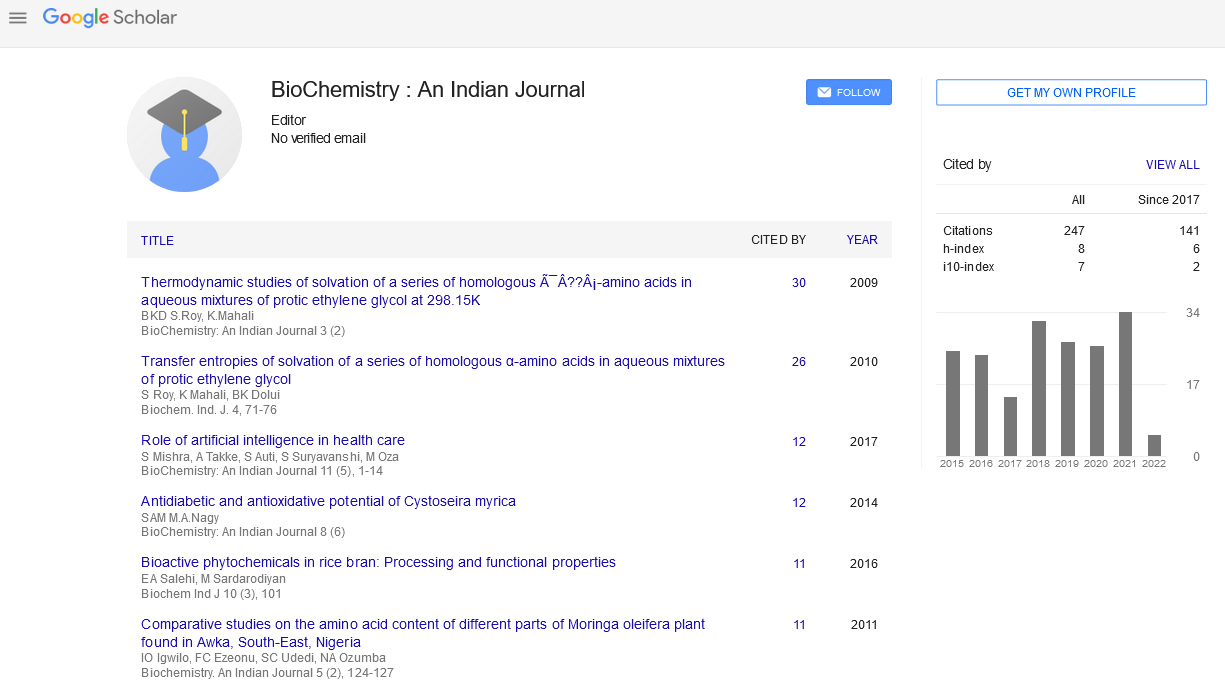Abstract
Tissue-specific decline in the orphan nuclear estrogen-related receptor alpha and its target medium-chain acyl-CoA dehydrogenase levels in aged female mice
Author(s): Harmit S.RanhotraThe estrogen-related receptor alpha (ERRï¡) is a gene regulator that modulates target genes controlling metabolic and various functions and actively promotes energy homeostasis in animals. Since aging in animals is characterized by deregulation in energy homeostasis, whether ERRï¡ level undergoes modulation during aging was investigated. Western analysis demonstrated positive ERRï¡ expression in various tissues, with the heart expressing the highest ERRï¡ level. The level of ERRï¡ in old (24 months) miceÂ’s heart, kidney and skeletal muscle was significantly reduced (by 46.50%, 38.40% and 30.30%, respectively) compared to young (3 months) mice. Moreover, ERRï¡ level was unchanged in the small intestine, liver, lung, uterus and brain of old mice as compared to young animal. The level of ERRï¡-inducible enzyme,medium-chain acyl-CoAdehydrogenase (MCAD) was also reduced in the heart (by 35%), kidney (by 40%) and skeletalmuscle (by 25%), including liver (by 30%) in old mice, but not in other tissues. The unchanged ERRï¡ level in these tissuesmay be beneficial and help maintain tissue energy balance and other functions. However, decreased cardiac, renal and muscle ERRï¡ along with MCAD level in the old animal might disturb normal nutrient-sensing pathways which may have a negative effect on energy generation and homeostasis.

